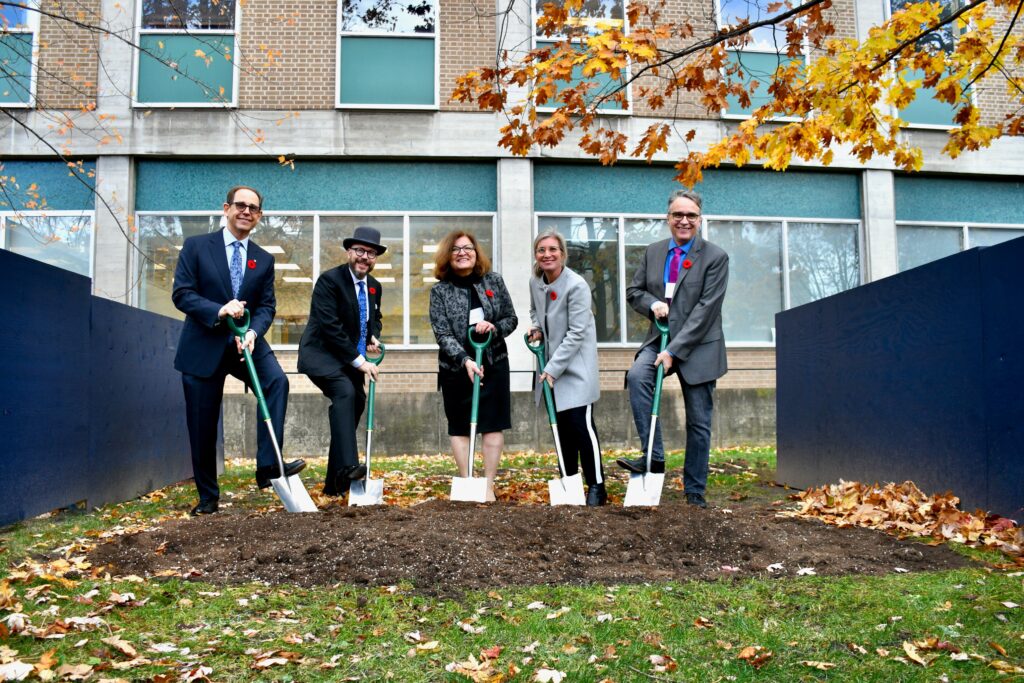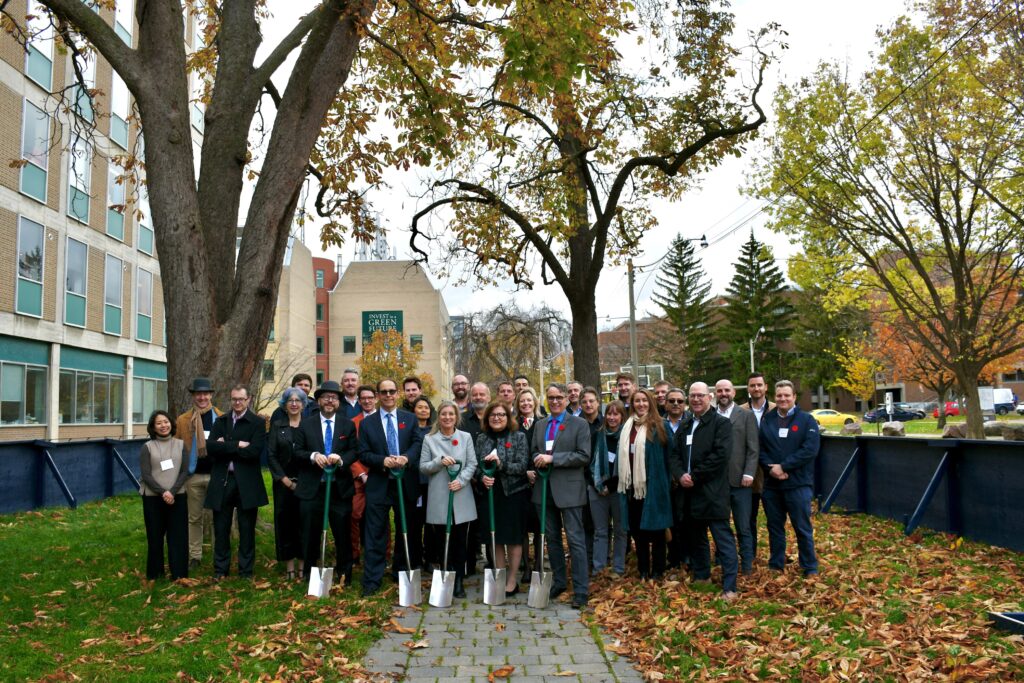U of T breaks ground on a new home for the Acceleration Consortium
Exciting expansion project will enable game-changing research in new materials discovery and solutions to world’s most pressing issues — from climate change to plastics pollution to cancer.

A rendering of the Lash Miller building expansion. Photo courtesy of Mikkelsen Arkitekter AS / Cumulus Architects.
On Nov. 7, faculty and staff from across U of T gathered to celebrate the expansion of the Lash Miller Building on the St. George campus with a special groundbreaking ceremony to mark the start of construction on the new home of the Acceleration Consortium (AC) and improved facilities for the Department of Chemistry.
Launched in 2021, the AC fuses artificial intelligence (AI), robotics, engineering and chemistry to accelerate the design and discovery of new materials. Using self-driving laboratories powered by AI, the AC works to discover materials needed to build a more sustainable, prosperous and healthy future.
“The research being done at the Acceleration Consortium is a cutting-edge approach to materials discovery. Now, more than ever, we need such new technologies to help solve the world’s most existential and intractable problems, from climate change to plastics pollution to cancer,” said Melanie Woodin, dean of the Faculty of Arts & Science. “This expansion is truly about advancing the University’s mission of research and teaching excellence.”

Shovels in the ground mark the expansion of the Department of Chemistry and a new home for the Acceleration Consortium. From left to right: Department of Chemistry chair Mark Lautens, Acceleration Consortium director Alán Aspuru-Guzik, chair of U of T’s Governing Council Anna Kennedy, Faculty of Arts & Science dean Melanie Woodin, former Department of Chemistry chair Robert Batey. Photo by Diana Tyszko.
In 2023, the University received a grant of $200 million from the Canada First Research Excellence Fund (CFREF), the largest federal research grant ever awarded to a Canadian university, to support the AC’s research.
“Developing such innovative technologies is made possible by the federal government’s visionary investment. This grant allows us to do big science, ensuring Canada remains competitive on the international stage,” said Woodin.



